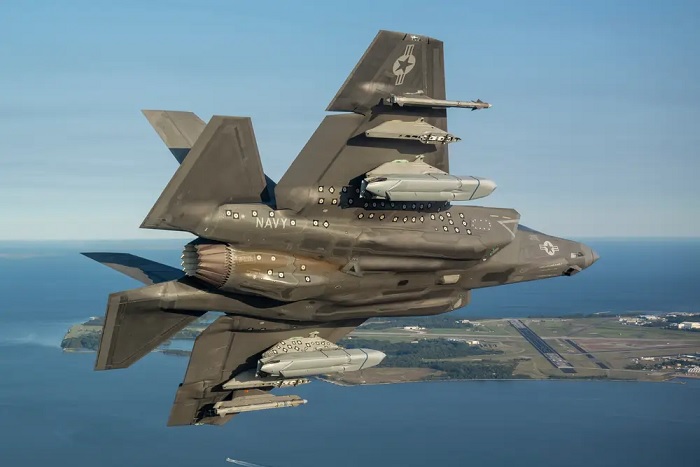Taiwan pushes for advanced weaponry to demonstrate its resolve in defending itself from Chinese aggression.
Taiwan’s Arms Proposal
Taiwan plans to purchase a $15 billion arms package from the U.S. to enhance its defense capabilities. Reports suggest the package could include 60 F-35 fighter jets, 400 Patriot missiles, four Advanced Hawkeye surveillance aircraft, and retired warships. Taiwan may also request Lockheed Martin’s Aegis Combat System, which targets missile launches using satellites.
Showing Strength to the U.S.
Taiwan’s goal is to signal its commitment to defense, especially to President-elect Donald Trump. A former Trump official stated that Taiwan plans to present this proposal to the new U.S. national security advisor. This bold move demonstrates Taiwan’s seriousness about self-defense and strengthening U.S.-Taiwan security ties.

US Military Photo
China’s Growing Threat
China claims Taiwan as its territory and has increased military pressure. U.S. officials believe China could be ready to invade by 2027. Experts expect China to target U.S. military installations in the Pacific with missile strikes and drones. A Chinese blockade could result in a $2.7 trillion loss in global economic activity in one year, according to the Global Peace Index.
Uncertainty Surrounding U.S. Support
Despite Taiwan’s defense efforts, questions remain about U.S. involvement. Trump’s comments suggest he may expect Taiwan to fund its own defense. Analysts doubt the U.S. would send troops to defend Taiwan in the event of a Chinese attack. However, Taiwan believes the proposed arms package will encourage U.S. support.
Global Impact of a Conflict
A Chinese blockade of Taiwan could reduce global GDP by 5%, according to Bloomberg’s estimates. This would severely impact both U.S. and Chinese economies, with far-reaching consequences for global trade and security.
Under the Biden administration, the U.S. approved a $2 billion arms sale to Taiwan in 2022. This package included radar systems and missile defense systems. During his first term, Trump authorized over $21 billion in arms sales to Taiwan, though his stance on defense remains unclear. Should Trump return to office, Taiwan hopes its defense package will secure a stronger U.S. commitment to its security.
Taiwan’s push for a more advanced defense system underscores its resolve to protect itself from Chinese aggression. While it seeks stronger U.S. ties, the level of support Taiwan can expect remains uncertain.
Our Visitor






 Users Today : 39
Users Today : 39





